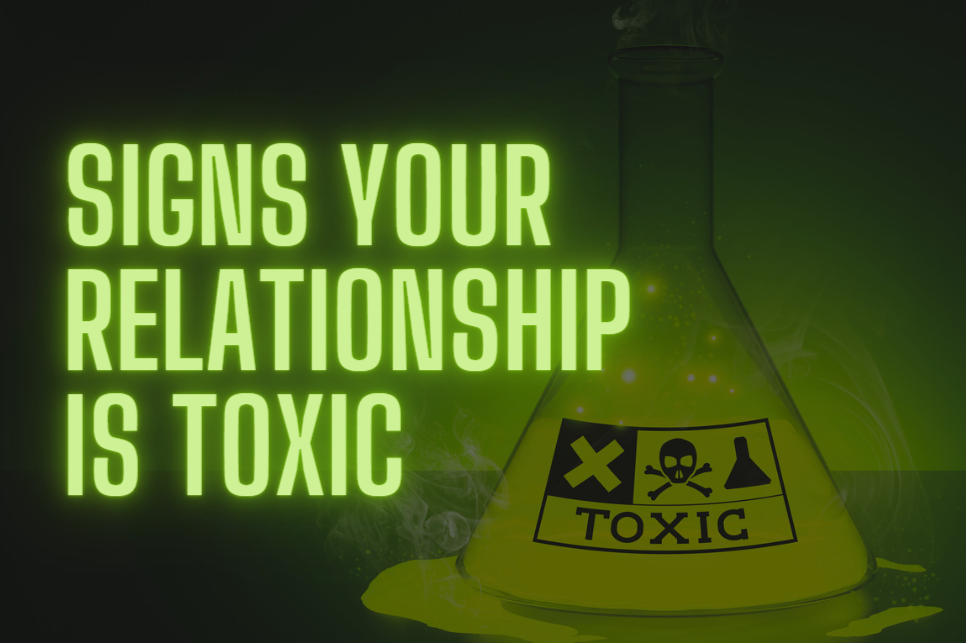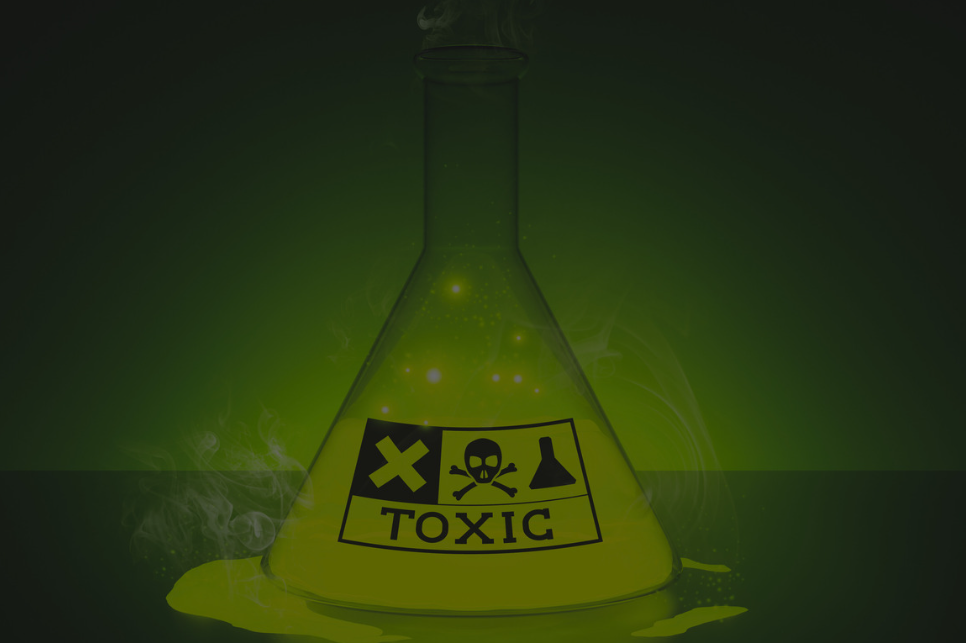
Introduction
It is a universal fact that relationships hold a mirror to the most intimate part of ourselves. These interactions, filled with love, care, and mutual respect, often allow us to grow and flourish. A healthy relationship should act as a sanctuary, a space where both individuals feel loved, respected, and safe. It should be a shared journey of growth, filled with mutual encouragement and a high degree of personal freedom.
However, there is another side to the coin. Just as relationships can be fruitful and nurturing, they can also become toxic and draining. When love becomes controlling, respect morphs into fear, and growth is replaced by stagnation, a relationship can be considered toxic. Recognizing the signs of a toxic relationship is of paramount importance. It not only helps individuals protect their emotional health but also empowers them to seek change.
In the forthcoming sections, we will delve into fifteen signs that may indicate the presence of toxicity in a relationship. These signs are categorized based on emotional symptoms, behavioral indicators, impacts on personal growth, and the long-term effects of enduring such a relationship.
Emotional Symptoms of a Toxic Relationship
Constant Fear and Anxiety
In the realm of love, fear and anxiety should not be the constants. A persistent sense of dread, often linked to the partner’s actions or reactions, may indicate a toxic dynamic. This could manifest as a fear of making mistakes, sparking an argument, or not living up to the partner’s expectations. Over time, this state of heightened anxiety can have a profound impact on a person’s emotional well-being.
Loss of Self-Esteem
In a healthy relationship, individuals inspire each other to be the best versions of themselves. However, in a toxic environment, the opposite often occurs. A toxic partner may belittle or demean their significant other, leading to a significant drop in self-esteem. This constant attack on one’s self-worth could make the person start doubting their value and capabilities.
Constant Criticism and Blame
Toxic relationships often revolve around blame and constant criticism. This can take the form of negative remarks, disrespectful comments, or a habitual refusal to take responsibility for personal actions. Instead, the blame is shifted onto the other person, creating a hostile environment.
Feeling Drained
Relationships, while not always easy, should provide an overall sense of happiness and fulfillment. However, if one routinely feels drained or exhausted after interacting with their partner, it may signal toxicity. Emotional drain could be caused by repeated cycles of arguments, constant stress, or feelings of having to defend oneself continually.
Behavioral Signs of a Toxic Relationship
Having delved into the emotional symptoms that often characterize a toxic relationship, it becomes necessary to explore the behavioral aspects as well. From frequent, unresolved arguments to a palpable lack of personal freedom, these signs highlight how toxicity manifests in shared actions and reactions.
Frequent Arguments
Disagreements are a natural part of any relationship, and it’s through them that we can grow and understand our partners better. However, when arguments become a frequent occurrence and are rarely resolved in a fair and respectful manner, it may be indicative of a toxic dynamic. This issue is further compounded when the quarrels involve degrading language, manipulative tactics, or an absence of constructive communication.
Walking on Eggshells
A symptom often associated with toxic relationships is the feeling of ‘walking on eggshells’. This refers to a heightened sense of caution around a partner, fearing that any small action or statement might trigger an argument or negative response. Living in this state of hyper-vigilance can be extremely stressful and is far from the comfort and security that a healthy relationship should provide.
Loss of Personal Freedom
A cornerstone of any healthy relationship is the respect for each other’s personal freedom and space. This includes the freedom to pursue personal interests, spend time alone, and make independent decisions. If a partner constantly controls or excessively monitors the other’s actions, restricting their freedom, it suggests a toxic dynamic. This control could manifest in various ways, such as limiting social interactions, dictating personal choices, or demanding constant updates about their whereabouts.
Disregard for Boundaries
Healthy relationships thrive on mutual respect, which includes respect for personal and emotional boundaries. If a partner consistently disregards the other’s boundaries, it may indicate a toxic relationship. This disregard can take many forms, such as invading privacy, neglecting the need for personal space, or ignoring expressed emotional limits.
Through these behavioral signs, we can see how a toxic relationship often infringes upon personal space and freedom, creating an environment of constant tension and discomfort. Recognizing these signs is a crucial step towards seeking change and fostering healthier relationship dynamics.
Effects of a Toxic Relationship on Personal Growth
After examining the emotional symptoms and behavioral signs indicative of a toxic relationship, the focus now shifts to understanding how such a relationship affects personal growth. From stunting individual development to fostering a pervasive negativity, these impacts can significantly influence one’s sense of self and their progress towards personal goals.
Stunted Personal Growth
Personal growth is a key aspect of any individual’s journey, often enabled and enhanced by a supportive relationship. However, a toxic environment can inhibit this process. This could manifest as a loss of ambition, a decrease in motivation, or a waning interest in personal hobbies and passions. The constant pressure and negativity in a toxic relationship can make one lose sight of their individual growth and aspirations.
Lack of Support for Personal Goals
A partner’s support can be instrumental in achieving personal goals. In a toxic relationship, however, one might experience a lack of support or even direct opposition to their personal objectives. This lack of encouragement can be demotivating and may hinder the individual’s progress towards their goals.
Constant Negativity
In a toxic relationship, there’s often an omnipresent cloud of negativity. This can pervade all aspects of life, affecting one’s outlook, performance, and personal growth. The constant negativity can dampen enthusiasm, instigate pessimism, and generally create an environment that’s not conducive to growth and happiness.
These aspects illuminate the significant impact a toxic relationship can have on personal growth. Understanding these effects can be an important step towards acknowledging the need for change and cultivating an environment that supports individual development and happiness. The following section delves into the long-term effects of enduring such a relationship.
Long-Term Impact of a Toxic Relationship
The impact of a toxic relationship is not confined to the immediate present. In fact, the adverse effects often seep into the future, leaving long-lasting implications on one’s life and other relationships. From damaging relationships with family and friends to engendering prolonged stress, the long-term effects of enduring a toxic relationship are noteworthy.
Damage to Other Relationships
One of the often overlooked impacts of being in a toxic relationship is its effect on other relationships. This damage can take multiple forms. It could be isolation from friends and family, strained relations due to the constant stress, or even the unintentional mimicking of toxic behaviors in other relationships. The fallout from a toxic relationship can ripple out, negatively affecting an individual’s social circle.
Prolonged Stress and Its Effects
Prolonged exposure to a toxic relationship often results in chronic stress. This state of sustained stress can have numerous health implications, both physical and psychological. From sleep disorders and impaired cognitive function to a weakened immune system and mental health issues like anxiety or depression, the toll of chronic stress can be heavy.
Doubt in Future Relationships
Another long-term consequence of enduring a toxic relationship is the creation of doubt and fear about future relationships. Past experiences with a toxic partner may cause one to question their judgment or worry about repeating the same pattern in future relationships. This fear can inhibit the capacity to form healthy, trusting relationships down the line.
These long-term impacts underscore the serious and far-reaching consequences of staying in a toxic relationship. However, acknowledging these effects represents a crucial turning point – it is the first step towards seeking help, making necessary changes, and prioritizing one’s well-being. The next section explores this pivotal aspect of acknowledging toxicity and the importance of seeking help.
Getting Out of a Toxic Relationship
The journey from recognizing the signs of a toxic relationship to finally extricating oneself from it is a challenging yet empowering process. The first step on this path is acknowledging the presence of toxicity. This acceptance enables one to approach the situation with clarity and determination, seeking the necessary help and support.
The Importance of Acknowledging the Toxicity
Acceptance can often be the most difficult step. Recognizing and acknowledging that one is in a toxic relationship involves confronting painful realities and potential upheaval. However, it’s a vital step towards reclaiming one’s happiness and well-being. Once the toxic dynamics are acknowledged, it opens the door to seeking professional help, confiding in trusted friends or family, or engaging with support groups.
This process of acknowledgement, coupled with seeking support, sets the foundation for the critical shift away from toxicity. It’s essential to remember that while the journey might be challenging, the destination—freedom from toxicity and the cultivation of healthier relationships—is worth every step.
With this understanding, the significance of acknowledging the presence of toxicity and the need for support is clear. This brings us to the final section of the article that wraps up the key points and reiterates the importance of maintaining emotional health.
Conclusion
Navigating the intricate nuances of relationships can be an arduous task, particularly when dealing with toxic dynamics. However, the effort to identify and address such issues is crucial to protecting and prioritizing one’s emotional well-being. By recognizing the 15 signs of a toxic relationship discussed in this article—spanning emotional symptoms, behavioral indicators, impacts on personal growth, and the long-term effects—individuals can take the first step towards seeking change and fostering healthier relationships.
The journey from recognition to resolution is undoubtedly challenging, but every step taken is a step towards reclaiming happiness and well-being. The importance of acknowledging the presence of toxicity cannot be overstated, as it serves as the catalyst for change. Coupled with seeking help and support, individuals can make the critical shift away from toxic relationships and towards healthier, more fulfilling ones.
As we conclude, remember that relationships should be a source of support, growth, and happiness. They should offer love and respect, not fear and control. Recognizing the signs of a toxic relationship is the first step in ensuring that one’s emotional health is always a priority.




